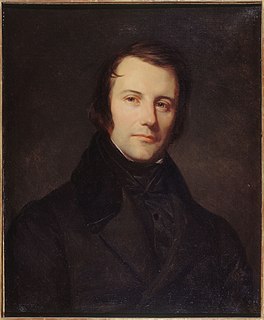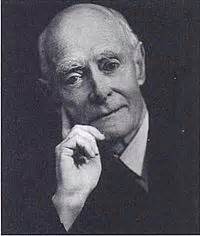A Quote by D. Patrick Miller
Religion is a set of social and political institutions and spirituality is a private pursuit which may or may not take place in a church setting.
Related Quotes
Religion is organized, and spirituality is what the individual feels in his relationship with truth and with God. And although spirituality may be expressed in a religion, many people are spiritual and never go to church. They aren't religious in the sense that they practice a certain type of discipline.
If today you can take a thing like evolution and make it a crime to teach it in the public school, tomorrow you can make it a crime to teach it in the private schools, and the next year you can make it a crime to teach it to the hustings or in the church. At the next session you may ban books and newspapers. Soon you may set Catholic against Protestant and Protestant against Protestant, and try to foist your own religion upon the minds of men.
Let us pray for the Catholic Church; for the Churches throughout the whole world; that is, for their truth, unity, and stability; that in all charity may flourish, and truth may live. For our own Church, that what is lacking in it may be supplied; what is unsound, corrected; that all Heresies, Schisms, Scandals, as well public as private, may be removed. Correct the wandering, convert the unbelieving, increase the faith of the Church, destroy Heresies, discover the crafty enemies, crush the violent.
Religion, therefore, as I now ask you arbitrarily to take it, shall mean for us the feelings, acts, and experiences of individual men in their solitude, so far as they apprehend themselves to stand in relation to whatever they may consider the divine. Since the relation may be either moral, physical, or ritual, it is evident that out of religion in the sense in which we take it, theologies, philosophies, and ecclesiastical organizations may secondarily grow.
Among the more irritating consequences of our flagrantly religious society is the special dispensation that mainstream religions receive. We all may talk about religion as a powerful social force, but unlike other similarly powerful institutions, religion is not to be questioned, criticized or mocked.
In its pursuit of justice for a segment of society, in disregard of the consequences for society as a whole, what is called 'social justice' might more accurately be called anti-social justice, since what consistently gets ignored or dismissed are precisely the costs to society. Such a conception of justice seeks to correct, not only biased or discriminatory acts by individuals or by social institutions, but unmerited disadvantages in general, from whatever source they may arise.
I find it perfectly consistent for libertarians to operate on the municipal or county level, where they are close to the people and where they may have a party or a federation that is made up of the social institutions, the residual social institutions that still remain, over and beyond what the State has managed to preempt and absorb.
If the heart be chiefly and directly fixed on God, and the soul engaged to glorify him, some degree of religious affection will be the effect and attendant of it. But to seek after affection directly and chiefly; to have the heart principally set upon that; is to place it in the room of God and his glory. If it be sought, that others may take notice of it, and admire us for our spirituality and forwardness in religion, it is then damnable pride; if for the sake of feeling the pleasure of being affected, it is then idolatry and self-gratification.
Identity means "how do I get known? How do I expressmyself?" and that's generally what I'm helping somebody do. It may be three dimensional, it may be a public space, it may involve government,it may involve cultural institutions, it may involve corporations, it may involve editorial publications - it can be anything, really.



































